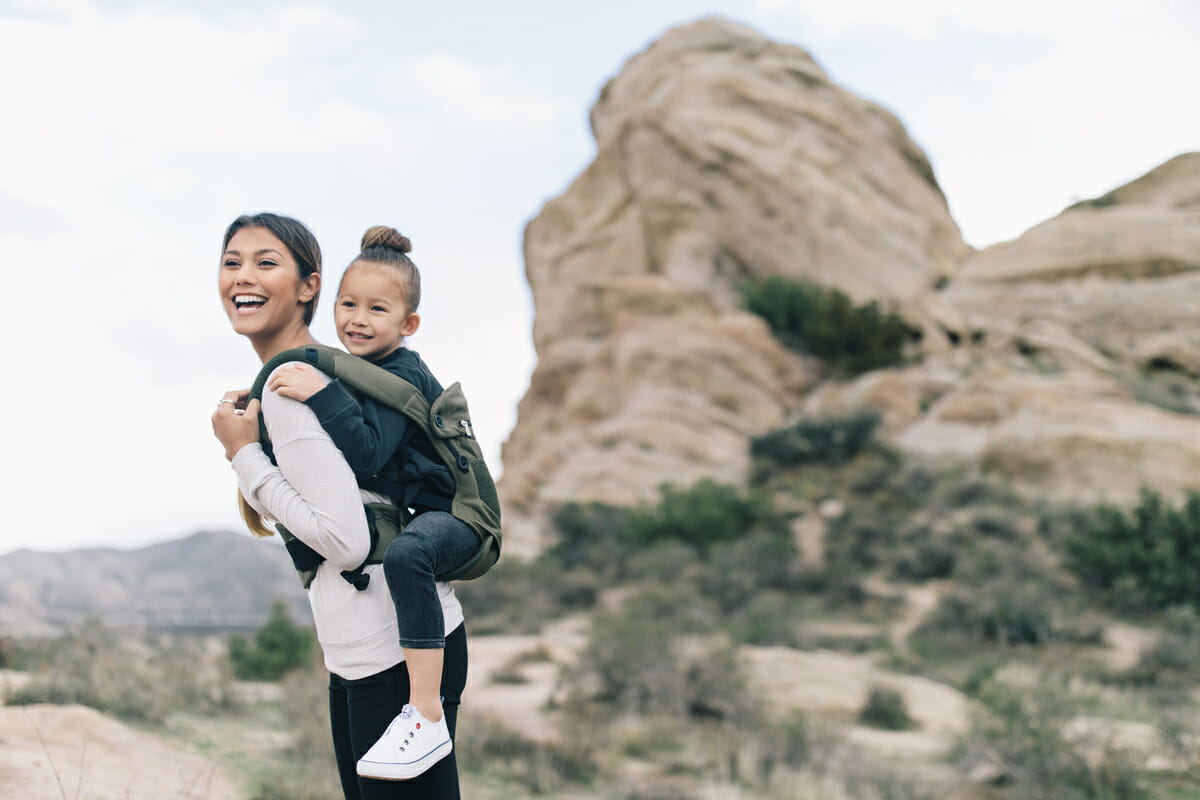
Have you ever stopped to think about how your everyday choices impact the planet? From your eating to your shopping habits, here are six ways you can become a more eco-friendly family.
1. Choose reusable items over disposable ones.
Families today are busy. Between soccer tournaments, piano lessons, haircuts, homework, meal planning, and work meetings, there’s probably something on your calendar every day of the week. That’s why there’s so much power in convenience. If a product will make our lives easier in any way, we’re all about it. But does that mean we have started caring more about convenience than the environment?
One way your family can make greener choices is by ditching disposables and switching to reusable items. Some reusable alternatives you can start using include:
- Cloth diapers and wipes
- Metal or glass straws
- Reusable sandwich baggies
- Pre-portioned stainless steel lunch boxes
- Canvas shopping bags
- Washable cloth napkins and towels.
2. Say no to plastic.
More than 300 million tons of plastic are produced each year, and about 50% of that is only made for one use. It’s also estimated that more than 300,000 tons of plastic are littered or inadequately gotten rid of each year. Put a stop to your carbon footprint of plastics by not using plastic cups, straws, water bottles, and bags.
Research shows that the average American family uses approximately 1,500 plastic shopping bags each year, and only 1% of plastic bags are recycled. The rest end up in landfills. It takes 500 or more years for a plastic bag to decompose in a landfill. So the next time you go to the grocery store, don’t put your produce in the plastic produce bags spread throughout the produce section. Bring your own reusable cloth grocery bags instead. And again, with the convenience factor, it may be hard but try to lessen how much food you buy that’s packaged in plastic bags and containers.
3. Shop more responsibly.
Besides food, you can be a more sustainable shopper by shopping at secondhand stores and buying sustainable baby products from companies that make products from sustainable sources, such as clothes, toys, furniture, and baby gear. You can also accept hand-me-downs from family and friends.
Don’t be afraid to shop secondhand, and don’t think of it as settling for less. A lot of gently-used items you find at secondhand stores, garage sales, and online are just as good as buying something brand new. Plus, they’ll save you money. Just make sure that when you buy pre-owned items that they’re in good condition and safe for your family to use.
You can also do your part by selling or donating your gently-used items. Everlove is a sustainable program where Ergobaby buys back, restores, and resells pre-loved baby carriers.
4. Reduce your at-home water usage.
The EPA estimates that the average American family uses more than 300 gallons of water at home every day. That’s a lot of water! Water conservation will save you money each month, will help prevent water pollution in nearby rivers, lakes, and oceans, and can prevent greenhouse gas emissions.
So how do you cut down on your family’s water consumption? Start in the bathroom. You use less water taking a shower than you do a bath. A 10-minute shower with a low-flow showerhead uses 25 gallons of water, while it takes 35-50 gallons of water to take a bath. If you have babies and/or toddlers who need to take baths, only bathe them when it’s necessary – not every day – and let siblings bathe together while it’s appropriate.
Along with taking showers instead of baths and using a low-flow showerhead, you can also reduce your indoor water usage by keeping your showers short, turning off the water while brushing your teeth, using leftover drinking water to water house plants, fixing leaky faucets or toilets, using a water filter instead of buying bottled water, and only running the dishwasher when it’s full.
5. Have recycling and compost bins.
Recycling is one of the easiest and best ways for your family to live a more sustainable life. You can even start teaching your kids about recycling when they’re babies or toddlers. Have different colored bins, such as green for paper and yellow for plastics, and help your kids place the right items in each container. Kids love putting things into containers, and you’ll be surprised at how quickly they catch on. This will hopefully become a fun task for your kids instead of another chore you have to do.
Along with recycling bins, have a compost bin. It will help reduce your family’s waste by reusing food scraps you’d normally throw away. A compost bin will also help you save money and can be used to help your garden grow better.
6. Teach your kids about the environment.
Your kids (and your partner!) are never too old or young to learn. You can teach your kids about the outdoors and why and how to respect it by spending time in your backyard, going on a nature walk, planting a tree, caring for a garden, and setting up a birdfeeder. You can also volunteer to clean up a local park.
Another great way to start teaching young children about the environment is by reading to them. Check out your local library or look online for earth-conscious books, such as “This Is Our World” and “I Can Save The Ocean” from the Little Green Books series. Reading is an easy way to get the conversation going about how we can better take care of the environment and why we all need to do our part to care for the planet.
Sustainable living doesn’t have to be complicated or overwhelming. By making small, eco-friendly family choices every day, your family will help make the world a better place to live in.



